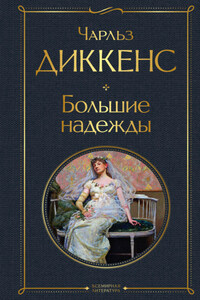Volume One – Chapter One.
One of her Victims
Seven o’clock in the morning, and chee-op – chee-op – chee-op – chirrup – pee-yew– a splendid thrush waking the echoes with his loud notes; the blackbirds down in the copse whistling a soft love-song to their silent mates, waiting in their cup-like nests for the first chip of the blotched eggs; Coelebs, the chaffinch, pouring down tinkling strains from the pink-blossomed apple-trees; while the larks high above the young corn and clover, twittered their joyous hymn in rivalling accord to the May-morning sun. The dew lay heavy and cold upon the tawny, sweet-scented wallflowers, and the freshness of feeling in the shade whispered that the silvery whiteness of their hues was not far removed from frost.
So thought the Reverend Arthur Rosebury, as he stood contemplating the flower-beds in front of the quaint old Rectory, whose windows were framed in the opening blossoms of a huge snaky-stemmed wistaria, one of which windows – his own – was wide open, and had been for an hour, while its fellow over the little drawing-room was delicately draped in snowy dimity.
Geraniums formed the subject of the Reverend Arthur’s contemplation as he stood upon the closely-shaven, dewy lawn; and he had just come to the conclusion that he had better wait another week before filling his beds with the scarlet trusses, when there was the sharp sound of brass rings upon a rod. The dimity curtains were drawn aside, the casement window was opened and carefully hooked back, and the kit-cat living portrait of a pleasant plump little woman of about forty appeared in the frame.
“Arthur, I’m sure you are getting your feet wet,” she chirped.
The tall, very thin curate of Little Magnus looked dreamily up at the window, and then down at his feet, stooping a good deal to obtain a nearer view. Slowly rising, he looked up at the window again, took off his soft felt hat, smoothed his thin grey hair, and said slowly:
“No, my dear, I think not.”
“But I’m sure you must be, Arthur; it’s a very heavy dew?” cried the little lady, emphatically.
“Yes, my dear Mary,” he replied, in a slow, deprecating way, “it is a very heavy dew, but I have got on my goloshes.”
“Ho!” exclaimed the little lady, and she disappeared.
The Reverend Arthur Rosebury began to make a peculiar humming noise, somewhat suggestive of a large bumble-bee trying to practise a chant, which was his idea of singing, and was walking slowly off towards a laurel-shaded walk when the little lady once more appeared at the window.
“Arthur!”
“Yes, my dear Mary?”
“Don’t you go far away; breakfast won’t be long.”
“No, my dear Mary.”
“Where shall you be?”
“Down by the bees.”
“You’ll come when I whistle?”
“Yes, my dear Mary.”
The lady disappeared once more, and the curate of Little Magnus went slowly and deliberately down the garden of the Rectory, where he had been for many years resident; the wealthy rector, who was a canon of Dunchester, finding a sermon or two a year nearly all he could give to the little parish.
The bees were visited, both those dwelling in the round-topped, old-fashioned straw hives and the occupants of the modern square boxes, cunningly contrived to enable the proprietor to commit honied burglaries without adding bee-murder to the offence.
The bees were as busy as those immortalised by Dr Watts, and coming and going in the bright sunshine, making a glorious hum in a snowy cherry-tree close at hand, and suggesting to the curate’s mind ample supplies of the cloying sweet, about five hundredweights of which he hoped to sell at a shilling a pound.
The Reverend Arthur went slowly away, smiling in his heart – he rarely smiled visibly – happy and thankful for his lot; opened the white gate in the tall green hedge, and after closing it carefully, began to walk across the drenched grass, a couple of soft-eyed, mousy-skinned Alderney cows slowly raising their heads to stare at him, munching the grass the while, and then coming to meet him, lowing softly.
“Ah, Dewnose! Ah, Bessy,” he said, pulling the great flapping ears of each in turn, and inhaling the puffs of warm, sweet-scented breath as he passed, the cows watching him for a few moments, and then, evidently thinking fresh dewy grass preferable to the best of curates, they resumed their quiet “crop crop” of the verdant meal.
The meadow crossed, another gate led back into the garden, where a long glass-house stood with open door inviting the Reverend Arthur to enter and breathe the warm, deliciously-scented air. The sun was shining brightly and came in a shower of rays upon the red-bricked floor, broken up as it were by the silvery shoots of the vines whose leaves were fringed with drops of pearly dew.
A glance at the leafy roof displayed so much attention needed that the Reverend Arthur, after a little contemplation and a few moral comparisons between the wild growth of the vine and that of the young and old of the parish, slowly took off his coat, lifted a heavy plank and placed it across two of the iron rafter-ties of the building; and after satisfying himself of its safety, mounting a pair of steps, climbing on to the plank, and seating himself in a very unclerical attitude, he began to snap off the redundant branches of the vine.














